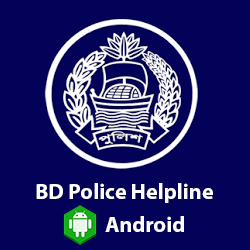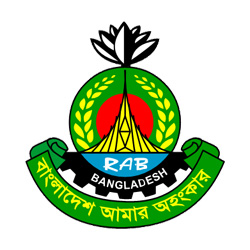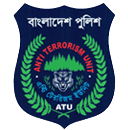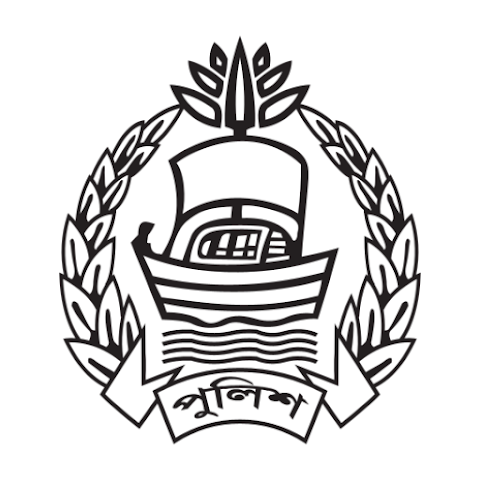গবেষণা ফলাফল
Research Year: 2022-2023
Research Report Presentation for the Year 2022-2023
|
Sl. No. |
Title of the Research (PPT file has been linked with title) |
|
01 |
Digital Transformation and Economic Impact in Bangladesh An Evaluation of the e-Commerce Industry |
|
02 |
|
|
03 |
|
|
04 |
Factors Related To E-learning Adoption In Higher Education Bangladesh Perspective |
Research Year: 2017-2018
|
Sl. No. |
Title of the Research |
Name of the Researchers |
Objectives of the Research |
Findings of the Research (In brief) |
|
01 |
Evaluation on Participatory Method of Selected Project Management Training Programs: Lessons learning for NAPD
|
1. Md. Hasan Tarik (Research Director) Director (Research & Publication), NAPD 2. Dr Mohammad Thoufiqul Islam (Researcher) Professor, Dept. of Management, DU 3. Thouhidur Rahman Chowdhury (Research Associate) Deputy Director (Research & Publication), NAPD 4. Md. Sirajul Islam (Research Associate) Research Officer, NAPD 5. Md. Emamul Hafiz Nadim (Research Associate) Research Officer, NAPD 6. Dipayan Chakraborty Partho (Research Associate) Research Officer, NAPD 7. Lipia Khatun (Research Associate) Evaluation Officer, NAPD |
This study aims at achieving the following major specific objectives: 1. To what extent participatory method is being used in NAPD and similar different organizations in Project Management Courses. 2. To find out the gap between expectations and actual experience of participatory method in project management courses of NAPD. 3. To study the present trend of participatory training methods in selected regional training organizations.
|
The aim of this study is to explore how far NAPD organized training programs are effectively participated rather than other training institutions as well as universities. Training methods are important for gratifying the needs of the trainees which generate the demand of the NAPD organized training courses. To get this answer we have to find out effective training methods and develop the course curriculum accordingly to formulate effective training courses. General objective of the study is to assess the applicability of participatory methods of selected project management training programs of NAPD. In this research, extent of participatory method used in two selected project management training courses was analyzed. One is six months long Project Planning, Development and Management (PPDM) and the other is strategic Planning and Project Management (SPPM). The trainers mostly followed lecture method in NAPD organized training courses. Sometimes they also used group exercise and case study methods. 58.2% of the trainers opined that they got enough time for the preparation for conducting session. The study was conducted among some reputed institutes like BIM, BARD, DU, ISRT-DU, BRAC, BUET,IBA-DU & so on and was observed that all of these follow lecture methods specially in providing training on Research Methodology, Project Management, Monitoring & Evaluation, project Appraisal etc. But case study & group work methods are also widely used methods. The trainers followed lecture method mostly when conducting training session in different training organizations. They also included group work and case study accordingly as effective methods. The comparative analysis of various participatory methods among the different module of the selected training courses was analyzed. The findings indicate that the majority of the NAPD respondents opined about lecture (82.42%) and group work (51.65%) methods were applied. For the project appraisal module NAPD participants agreed that lecture method (87%) is the most effective method than others. Most of the NAPD trainees opined that lecture, case study and field visit are more effective for the project implementation module. When the respondents were asked to rank the factors to consider in case of using participatory method, participants’ interest was at the top as a factor. In considering the factors in case of participatory methods the trainers considered time, resources, organizers’ view point and participant’s interest are of important factor for implementing participatory methods in training sessions. When the respondents were asked to express about the factors which are beneficial to the trainees as a result of using participatory methods, most of them opined that the participatory methods encouraged learning environment. Total 46 respondents expressed about the time limit or duration of the classes. Potential Respondents of this research were asked to identify the challenges to introduce participatory methods in the selected courses. Total 56 respondents opined about the time limit or duration of the classes. |
|
02 |
Improvement of Public Service Delivery after Introducing Small Improvement Programs (SIPs) in Narayangonj District
|
1. Md. Hasan Tarik (Research Director) Director (Research & Publication), NAPD 2. Dr Mohammad Thoufiqul Islam (Researcher) Professor, Dept. of Management, DU 3. Thouhidur Rahman Chowdhury (Research Associate) Deputy Director (Research & Publication), NAPD 4. Md. Sirajul Islam (Research Associate) Research Officer, NAPD 5. Md. Emamul Hafiz Nadim (Research Associate) Research Officer, NAPD 6. Dipayan Chakraborty Partho (Research Associate) Research Officer, NAPD 7. Lipia Khatun (Research Associate) Evaluation Officer, NAPD |
This study aims at achieving the following objectives: 1. To measure the SIP implementation status of attached departments of Narayanganj district. 2. To explore the improvement of service delivery of SIP programs. 3. To identify the problems and sustainability issues of SIP programs of Narayanganj district. |
The Improving Public Services through Total Quality Management (IPS-TQM) Project is a five-year (2013-2018) long collaborative project of Bangladesh Public Administration Training Centre (BPATC) and Japan International Cooperation Agency (JICA) and five partner institutes. NAPD is one of the partner institutes of this project. The General Objective of this Project is to improve the quality of public services in the Upazilla-level Offices of the Government in Bangladesh through training and application of Total Quality Management (TQM) and Kaizen. In FY 2015-16 with the collaboration of NAPD and JICA implemented 23 small improvement programs in Upazila level offices of Narayanganj district were implemented. The objective of the research was to measure the SIP implementation status in the offices of Upazila level of Narayanganj district, to explore the improvement after implementation of SIPs and finally make some recommendations for better service considering identified problems and challenges. Survey was conducted in 21 offices among 23 Upazilla offices in Narayanganj district. Almost all the offices successfully implemented the small improvement programs. Though there are some problems and challenges, sustainability persisted in most of the offices. With limited resources, these offices had done better in terms of service delivery. In all the cases, SIPs were focused on customer (beneficiaries) satisfaction. Finally the research made some recommendation considering problems and challenges in each SIP. One thing was common i.e. continuation of Kaizen training and workshop. Because continuous improvement is possible through repetitive actions and arranging awareness building programs for the service providers. Finally a synergic work environment which promotes healthy competitions among different wings/ divisions of an office can do betterment in terms of service delivery. |
Research Year: 2016-2017
|
Sl. No. |
Title of the Research |
Name of the Researchers |
Objectives of the Research |
Findings of the Research (In brief) |
|
01 |
Exploring Effective Marketing Strategies for National Academy for Planning and Development towards Development Planning and Project Management Course |
1. Md. Hasan Tarik (Research Director) Director (Research & Publication), NAPD 2. Dr Mohammad Thoufiqul Islam (Researcher) Professor, University of Dhaka 3. Thouhidur Rahman Chowdhury (Research Associate) Deputy Director (Research & Publication), NAPD 4. Md. Sirajul Islam (Research Associate) Research Officer, NAPD 5. Md. Emamul Hafiz Nadim (Research Associate) Research Officer, NAPD 6. Dipayan Chakraborty Partho (Research Associate) Research Officer, NAPD |
This study aims at achieving the following major objectives:
|
NAPD should provide emphasis on website on training marketing. NAPD has got a better opportunity for its location to maximize the reach of the training. There are different marketing channels NAPD can use. NAPD can embrace social media, email, its training nomination letters, and also can run an online forum for better marketing of its training courses. For this reason NAPD can use AIDA (Awareness, Interest, Desire, and Action) approach for potential trainees.
|
|
02 |
Identifying the Causes of Delay in Public Procurement: A Study on the Project Implementation of Savar Upazila Parishad |
1. Principal Researcher : Professor Dr. Nazmul Ahsan Kalimullah, Pro-VC, Bangladesh University of Professionals 2. Co-Researcher : Saber Ahmed Chowdhury, Assistant Professor Department of Peace and Conflict Studies,University of Dhaka 3. Member: Engr. Md. Abdur Rashid, Director, Administration and Finance, NAPD |
The general objective of this study is to find out the major causes of delay in public procurement in the Upazila level. The specific objectives are- 1. To analyse whether the PPR- 2008 is properly maintained or not in procurement procedure. 2. To identify the causes of delay of public procurement in the pre-implementation and implementation phase of project at the Upazila Level. |
To use Bangla as a mandatory language in the procurement process. To provide adequate training for the concerned procurement officials. To ensure the use of e-GP in all stages of public procurement. To initiate administrative punishment system through an amendment to PPR-2008. To include the people’s representative in TEC and TOC. To prioritize the certified and experienced contractors in selecting tender application. To provide the contractors with adequate training as well as timely guidelines. To monitor the project implementation plan regularly. |
Research Year: 2015-2016
|
Sl. No. |
Title of the Research |
Name of the Researchers |
Objectives of the Research |
Findings of the Research (In brief) |
|
03 |
A Study on the Effectiveness of the Project Formulation, Appraisal and Environmental Impact Assessment courses |
1. Md. Hasan Tarik (Research Director) Director (Research & Publication), NAPD 2. Dr Mohammad Thoufiqul Islam (Researcher) Associate Professor, University of Dhaka 3. Md. Ramjan Ali (Research Associate) Associate Instructor, NAPD 4. Md. Sirajul Islam (Research Associate) Research Officer, NAPD 5. Md. Emamul Hafiz Nadim (Research Associate) Research Officer, NAPD 6. Dipayan Chakraborty Partho (Research Associate) Research Officer, NAPD |
This study aims to achieve the following major objectives:
|
Training effectiveness greatly depends on selecting right participants who are involved in DPP formulation. To adapt participatory method in the training sessions, arranging training sessions based on complexity levels and developing communication for post training period. It is suggested that additional time should allotted for each sessions that respondents mentioned as complex topics. Group work, group presentation, case study, project visit should be incorporated to the training method. Portal or web-based communication can be a media of communication among the trainees, NAPD & the expert trainers. |
|
04 |
Training needs assessment of the Ministry of Planning for re-designing the training course on Monitoring and Evaluation of Development projects |
1. Prof. Prafulla C Sarker, Ph D (Advisor) Pro Vice Chancellor European University of Bangladesh, Dhaka 2. Khan Md. Mainul Hoque (Team Leader) Training Specialist, NAEM 3. Md. Moynul Hasan Chowdhury (Research Assistant) Instructor, NAPD 4. Most. Abeda Sultana (Research Assistant) Associate Instructor, NAPD |
General Objectives: The main objective of this research is to examine the existing monitoring and evaluation methods and techniques and to modify them to find out the effective monitoring and evaluation techniques based on the needs. The specific objectives are given below The Specific Objectives: 1. To find out the strengths, weakness, opportunity and threats of the existing monitoring and evaluation training course. 2. To review the existing curriculum and its relevancy. 3. To explore the need based modified monitoring and evaluation methods, tools and techniques |
Concerned officers need to be participated. More practice session should be arranged on log frame. Assignment should be incorporated as training method in the brochure. Emphasize should be on case study. Attachment with project and IMED should be introduced for effective and sustainable learning. Resource person should be invited having both theoretical as well as practical knowledge. |
Research Year: 2014-2015
|
Sl. No. |
Title of the Research |
Name of the Researchers |
Objectives of the Research |
Findings of the Research (In brief) |
|
05 |
Overall Quality of NAPD Training Programs Compared to the Training Programs of Other Training Institutes of the Country: lapses and gaps.
|
Dr. M. Khurshed Alam (the Researcher) BISR
|
The general objective of the study is to assess the overall quality of NAPD training programs compared to the training programs of other training institutes of the country. The specific objectives of the research are:
|
The study assesses institutional capacities with regard to training. Overall participants were satisfied with the training institute capacities in terms of good and satisfactory institutional facilities, good number of experience faculty and guest speakers, course schedule and course hand notes are sufficient for each course module as well as service deliveries and hygienic issues. |
|
06 |
Assessment of professional competency level, Behavioral and Ethical change through NAPD Training and its implication in service delivery. |
Dr. Md. Nazrul Islam (the Researcher) Dean, School of Management and Business Administration & Head, Department of Business Administration, Shahjalal University of Science and Technology, Sylhet, Bangladesh. |
The general and specific objectives of the study are as follows: General objectives: (i) Review of training areas and curriculum, logistic supports and methods of imparting training of NAPD (ii) Assessment of competency level of the trainee through trainings in NAPD; (iii) Measuring the behavioral and ethical changes of the trainee after training in NAPD; and (iv) Evaluation of NAPD training program by peers, service receivers, subordinates and supervisor and investigating impact on others parameters Specific objectives:
|
This study claims that program has increased their overall competence and efficiency level in their job sector. With reference to the evaluation of competence level, there is a competence gap exists between potential and actual competence level and it is found significant. This study also claims that program has changed their ethical and behavioral concern positively in their job sector. |
Research Year: 2013-2014
|
Sl. No. |
Title of the Research |
Name of the Researchers |
Objectives of the Research |
Findings of the Research (In brief) |
|
07 |
Assessing Training Needs of Bangladesh Civil Service (Economic) Cadre officers |
1. Dr. S.J. Anwar Zahid Principal Investigator & Director (Research) BARD, Kotbari, Comilla 2. Abdullah Al Hussain Deputy Director BARD, Kotbari, Comilla |
The general objective of the study is to assess the areas of training BCS (Economic) Cadre officers require to perform their duties and responsibilities effectively and efficiently in line with their job requirements.
The specific objectives of the study are to:
|
Different Basic & refreshers training could be organized by NAPD from the revenue budget of the respected Ministry/Department on a regular basis or when it is found necessary. A special project may also be designed for providing specialized training as well as foreign training to the Economic cadre officers depending on their job position. |
|
08 |
Upazila Planning Process in Bangladesh: A Study of the Political Economy of Statistics with Special Reference to the Food and Agriculture Sector |
1. Dr. Mohammad Mozahidul Islam Associate Professor Dept. of History Jahangir Nagar University, Savar, Dhaka |
The objectives of the study are multi-fold in nature. The following objectives would be pertinent in carrying out this study:
|
This study unveils that the weakness of statistical data in Bangladesh are two-fold: data obtained from both national level as well as local level are marked as weak statistical evidence. Non-evidenced based policy formulation is the outcome of the weakness of statistical data. There is still use of statistical data but in this context they are only used for project justification but rather contributing scientific decision making process. |
|
09 |
Effectiveness of Self-Financed Training Courses of NAPD: A Case Study of Training Course on Project Planning, Development and Management (PPDM)
|
1. Dr. Khurshed Alam (Principal Investigator), CEO, BISR 2. Md. Iqbal Kabir (Co-Investigator) 3. Md. Habibur Rahman (Research Coordinator) |
The general objective of the study is to evaluate the effectiveness and usefulness of NAPD training course on project planning, development and management (PPDM). The specific objectives of the proposed research are:
|
The imparted knowledge is useful for the improvement of him/her as well as for their organization. They improved themselves in strategy of formulating project management, project cycle management, procurement strategy, financial analysis, network building, project resource management and report writing. |
Research Year: 2012-2013
|
Sl. No. |
Title of the Research |
Name of the Researchers |
Objectives of the Research |
Findings of the Research (In brief) |
|
10 |
Effectiveness of Local Development Projects: A Study on Two Upazilas in Bangladesh
|
Abdul Karim Joint Director BARD, Comilla |
The general objective of the research was to examine effectiveness of local development projects at the Upazila level of Bangladesh. The specific objectives were:
|
Both the studied Upazila Parishads (Adarsha Sadar & Homna) have demonstrated a strong capacity to spend ADP allocation in terms of expenditure which was more than 99 percent |
|
11 |
Social Safety nets and Productive Outcomes on Poverty Alleviation: Evidence and Implications for Future Plan |
Prof. Dr. Md. Nazrul Islam Dean, School of Management and Business Administration, SUST, Sylhet |
The objectives of this research project are:
|
Social Safety Net Program (SSNP) interventions are effective in generating higher income and enhance spending on food consumption among poor households. |
|
12 |
Barriers to Access Maternal Health Care Services among Urban Poor Women in Bangladesh: A case of Rajshahi City |
Bijoy Krishna Banik (Principal Investigator) Associate Professor Dept. of Sociology, RU Md. Saidur Rashid Sumon (Associate investigator) Assistant Professor Dept. of Sociology, RU Research Assistants Mahfuja Khatun Moslema Akhter Sathi Munmun Sen Toma Parul Roy |
Broadly speaking, the main aim of the study is to examine different barriers that discourage women to go for MHC services. Specifically, the aims of the study are:
|
Most of the poor women in the study areas are therefore more likely to receive adequate quantity and good quality of Maternal Health Care (MHC) services. There has been an increase in the availability of and accessibility to MHC services. |
|
13 |
Assessment of Women Vulnerability in Disaster: An Investigation into the Coastline Area |
Dr. Khurshed Alam (Research Director) Chief Executive BISR |
The objectives of the present research are as follows:
|
Women are significantly vulnerable than male during disaster because of women’s status and position in the society and discrimination against them. |
|
14 |
Knowledge Utilization: A Study of Post Graduate Diploma in Development Planning |
Md. Mahmudul Hasan, PhD MDS, Research Director (Joint Secretary), BPATC Md. Shafiqul Haque Deputy Director, BPATC M. Arifur Rahman, PhD Deputy Director, BPATC |
Specific objectives of this study are:
|
The achievement of the objectives such as the relevance of inputs of this course, extent of utilization of knowledge and new knowledge in job situation was not at a high satisfactory level. Achievement of objectives in terms of satisfaction was 60-70%. |
|
15 |
Use of ICT in Training: NAPD Perspective |
Md. Abdur Rashid System Analyst, NAPD S.M Tofayel Ahmed Assistant System Analyst Bangladesh Bank |
The general objective of the research is to study and evaluate the usefulness and effectiveness of the ICT tools in NAPD training. The specific objectives of the research are:
|
The research comes up with review of NAPD training to be modern one for becoming a Centre of excellence, using ICT tools. |
|
16 |
Impacts of Climate Change on Livelihood: An Exploratory Study in Selected Coastal Regions of Bangladesh |
1.Prof. Dr. Mahbuba Nasreen Director, Institute of Disaster Mgt. and Vulnerability Studies 2. Dr. Khondoker Mokaddem Hossain Pro VC, BOU 3. Md. Abul kalam Azad Lecturer Institute of Disaster Mgt. and Vulnerability Studies |
General Objective: The broad objective of the study is to explore the impacts of climate change on livelihoods of people living in coastal areas in Bangladesh. Specific Objectives: i. To explore the climate change related risks (possible impacts of poor people living in coastal areas. ii. To identify the alternative livelihood adaptation strategies of people to climate change. |
The findings of the study provide a detailed overview of the type of climate variability and climate induced disasters and their impacts on coastal people. The impacts of climate change vary based on the socio-economic conditions amongst vulnerable groups. Climate induced disasters force them to migrate outside of village in search of works. |
|
17 |
Measuring the Effectiveness of the Project Planning Development and Management Training Course in View of Project Management Professional Certification Level |
Dr. Md. Nuruzzaman (Research Director) Md. Hasan Tarik (Researcher) Chief Instructor NAPD |
This is an evaluative research. The general objective of the study is to evaluate the effectiveness and usefulness of Project Planning, Development and Management (PPDM) training course in view of Project Management Professional (PMP) Certification. The specific objectives are:
|
The study findings shows that there need improvement regarding content, facilitation etc. to cover the Project Management Professional (PMP) level.
|
Research Year: June 2004
|
Sl. No. |
Title of the Research |
Name of the Researchers |
Objectives of the Research |
Findings of the Research (In brief) |
|
18 |
Evaluation of Effectiveness and usefulness of English language Proficiency Course |
Md. Alamgir (Research Director) Chief Instructor, NAPD |
This was an evaluative research. The main purpose of the research was to evaluate the effectiveness and usefulness of the ‘English Language Proficiency Course’ from the participants’ point of view. The broad objectives were to assess whether
In view of the broad objectives mentioned earlier, the specific objectives of the study were as follows:
|
The findings of the research revealed that the expectation of 66 and 27 percent respondents respectively were partially and fully covered by the contents of the course. On an average 62 percent respondents stipulated that more sessions on each module were needed to acquire relevant skill. It was manifest through the research that the 96 percent of the respondents were somehow capable of utilizing the gained skill at their workplace. |
Research Year: May 2004
|
Sl. No. |
Title of the Research |
Name of the Researchers |
Objectives of the Research |
Findings of the Research (In brief) |
|
19 |
Assessment of Training Needs of Working Staff of the Department of Livestock Services |
Dr. A.K.M Nurun Nabi, Professor and Project Director , Department of Population Science Dhaka University |
The broad objective of this study was to assess the training needs of DLS working staff. Specific Objectives were:
|
All of the respondents’ agreed that departmental training is necessary to improve their professional skill and in addition to this some respondents think that academic training, refreshment training, office management training are also necessary. Department of Livestock Services (DLS) working staffs are short of proper training facilities. |
|
20 |
উন্নয়ন ভিত্তিক স্নাতকোত্তর ডিপ্লোমা প্রশিক্ষণ শেষে প্রশিক্ষণ কার্যকারিতা সংক্রান্ত সমীক্ষা |
কানিজ ফাতেমা প্রধান প্রশিক্ষক, জাতীয় পরিকল্পনা ও উন্ন্য়ন একাডেমি। |
গবেষণাটি মূলত: একটি মূল্যায়নমূলক গবেষণা (ঊাধষঁধঃরাব জবংবধৎপয)। আলোচ্য সমীক্ষাটির প্রধান উদ্দেশ্য “উন্নয়ন পরিকল।পনা বিষয়ক স্নাতকোত্তর ডিপ্লোমা” কোর্সটির গুণগত মান ও কার্যকারিতা যাচাই করা। সেই সাথে এর দুটি প্রধান বৈশিষ্ট্য হল (১) সমীক্ষাধীন কর্মসূচীটির বিষয়বস্তু লক্ষীভূত (ঃধৎমবঃবফ) প্রশিক্ষণার্থীদের জ্ঞান, দক্ষতা ও দৃষ্টিভঙ্গিও উন্নয়নে যথার্থ ও পর্যাপ্ত কিনা এবং প্রশিক্ষণে ব্যবহৃত পদ্ধতি, মেয়াদ ও উপকরণ যথাযথ কিনা। (২) প্রাপ্ত প্রশিক্ষণ কর্মক্ষেত্রে কার্যক্রমের সাথে সম্পৃক্ত ও পর্যাপ্ত কিনা। সমীক্ষার সুনির্দিষ্ট উদ্দেশ্য নি¤œরুপঃ ক) প্রদত্ত কোর্সেও কার্যকারিতা সম্পর্কে মাঠ পর্যায়/ কার্যক্ষেত্র থেকে সমাতমত সংগ্রহ। খ) প্রশিক্ষণার্থীদের মতামতের উপর ভিত্তি কওে যদি প্রয়োজন হয় তবে আলোচ্য কর্মসূচির পার্ঠধারা ও প্রশিক্ষণদান পদ্ধতির পরিবর্তন সাধন। গ) কর্মক্ষেত্রের সনাক্ত প্রতিবন্ধকতাসমূহ দূরীকরণে সুপারিশ প্রণয়ন। ঘ) সর্বোপরি ডিপ্লোমা কোর্সটিকে গুনগত দিক থেকে আন্তর্জাতিক মানে উন্নত করা। |
প্রশিক্ষণার্থীদের ব্যক্তিগত আগ্রহে ও উদ্যোগের কারণে কোর্সের বিষয়বস্তু অনেকটাই বিভিন্ন ভাবে কাজে লাগিয়েছেন। অনুকূল পরিবেশের অভাবে কোর্স লব্ধজ্ঞান ও পদ্ধতি কর্র্মক্ষেত্রে আংশিক বা সম্পুর্ণভাবে প্রয়োগ করা সম্ভব হচ্ছে না বলে কিছু প্রশিক্ষণার্থী জানিয়েছেন। এছাড়া কোর্সের মেয়াদ ও অনুশীলনীর সংখ্যা বৃদ্ধি এবং কিছু কিছু ক্ষেত্রে আরও যোগ্য প্রশিক্ষক বাছাই ইত্যাদি সুপারিশ হিসেবে প্রশিক্ষণার্থীরা তুলে ধরেছেন। |
Research Year: March 2001
|
Sl. No. |
Title of the Research |
Name of the Researchers |
Objectives of the Research |
Findings of the Research (In brief) |
|
21 |
Future of Girl’ Education in Bangladesh |
1.Mosharraf Hossain Principal-In- Charge, NAPD 2. Anisatul Fatema Yousuf Director (Training), NAPD |
The principal objective of the study is to identify policy and promotional measures on the future of girls’ education in Bangladesh. This objective has called for a thorough analysis of the present and past policies, strategies and programmes and also the existing status of girls’ education within the national drive for education for all. Specially the study attempted the following things: Firstly, recent trend of girls’ education subsuming women’s education are presented in order to demonstrate the emerging scenario of girl’ education in Bangladesh. Secondly, the study highlights the present and past policies, strategies and programmes for promotion of girls’ education; Thirdly, it analyses the socio-economic variables which directly or indirectly influence the girls’ education; Fourthly, the study analyses the sectoral gender sensitive measures and programmes taken by government which are likely to influence girls’ and women’s education; Finally, the study proffers recommendations for enhancing girls’ accessibility to education in future. |
The most formidable problem in the way of girls’ education in Bangladesh is not male domination but poverty, unequal opportunity and lack of management capability. |
|
22 |
Study to Assess Impact of Literacy Programme on Promoting Gender Parity |
1.Mosharraf Hossain Principal-In- Charge, NAPD 2. Anisatul Fatema Yousuf Director (Training), NAPD 3. Dr. M. Sekander Hayat Khan Director, ISRT, Dhaka University |
To Give the various dimensions of the literacy programme, the main objective of the study is to address the issue of gender parity. The specific objectives are
|
Total Literacy Movement (TLM) and Centre Based Approach (CBA) areas with literacy programme and controlled area without literacy programme exhibit varying levels of perception and knowledge of the neo-literate and non-literate in respect of gender related issues. Main reason for this uniformity of trend is that the two areas are constantly being influenced by Government development work, NGOs’ activity and issue based information communicated through Radio and television. |












